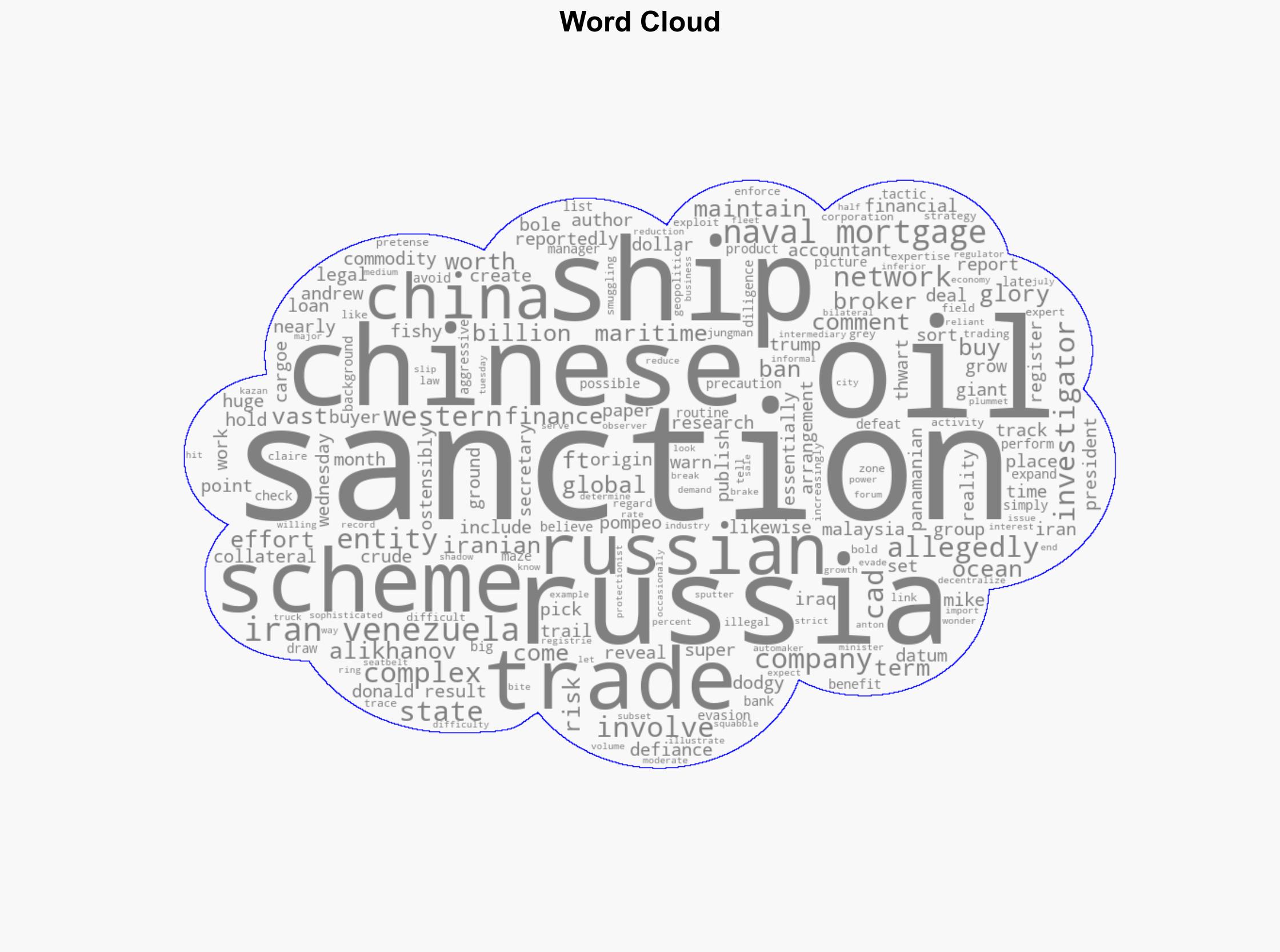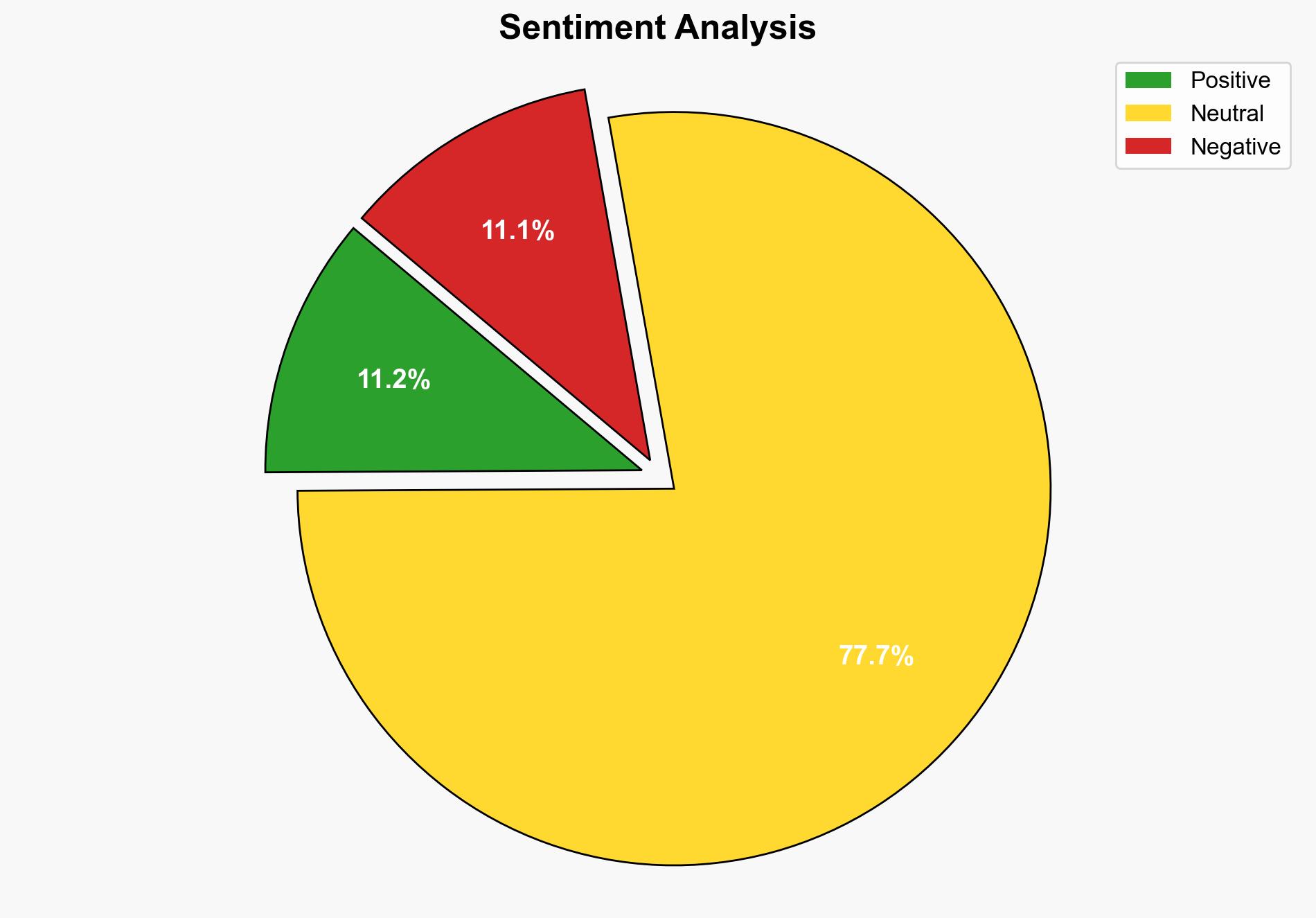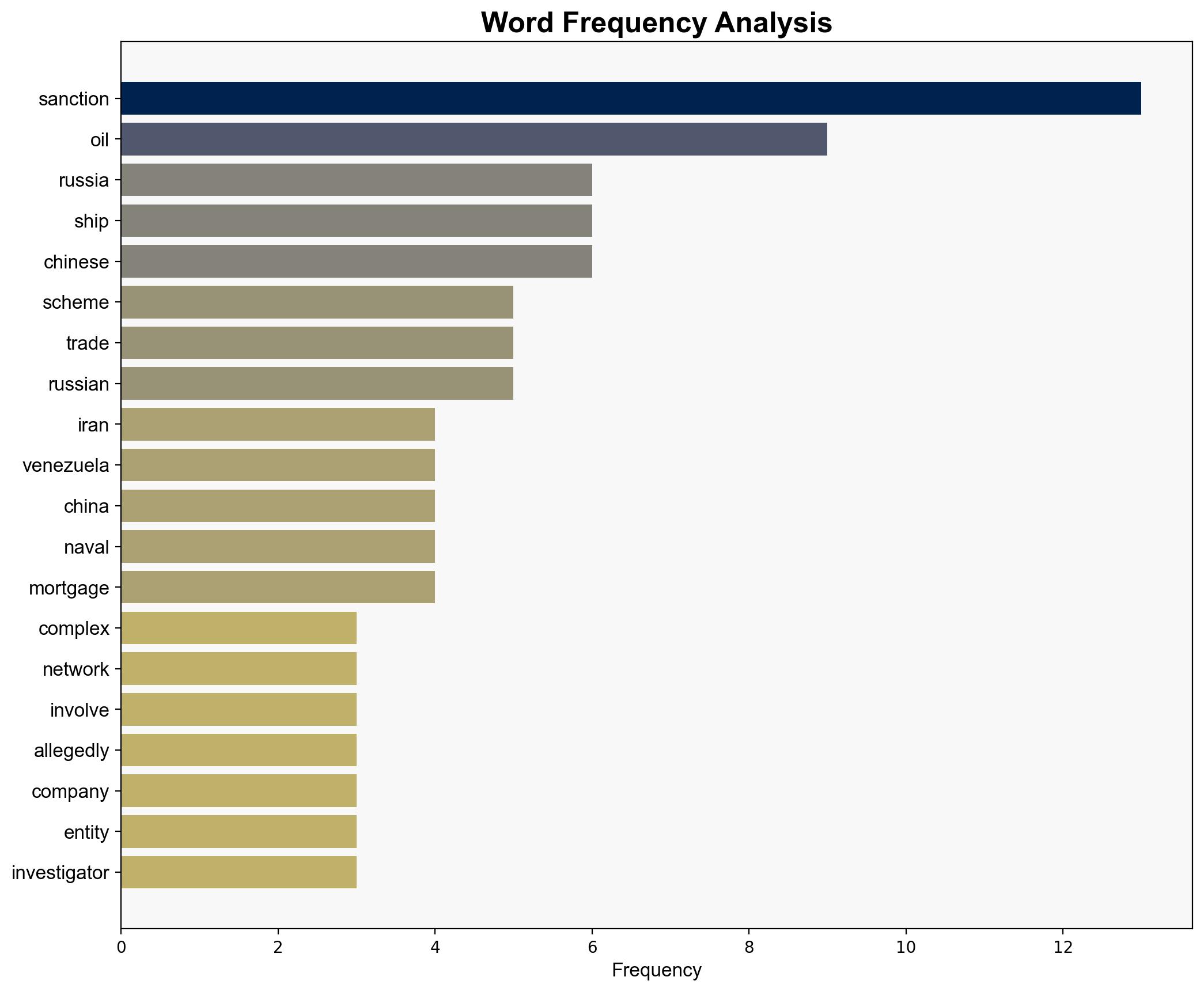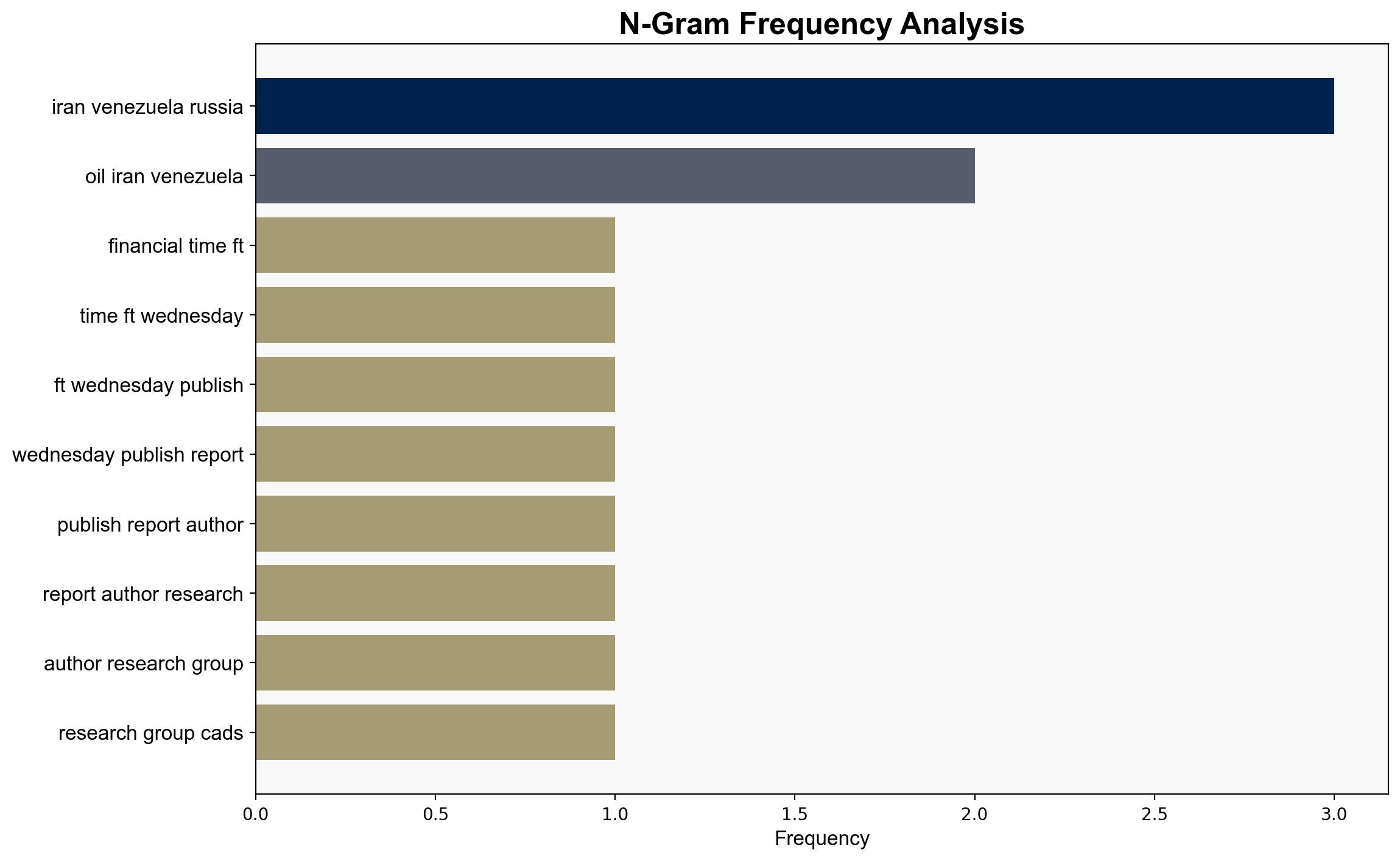Report China Meeting Its Massive Oil Demand with Illicit Shipments from Russia Iran Venezuela – Breitbart News
Published on: 2025-08-22
Intelligence Report: Report China Meeting Its Massive Oil Demand with Illicit Shipments from Russia Iran Venezuela – Breitbart News
1. BLUF (Bottom Line Up Front)
The most supported hypothesis is that China is utilizing a complex network of illicit shipments to circumvent international sanctions and meet its oil demand. This is facilitated by a sophisticated scheme involving naval mortgages and front companies. Confidence level is moderate due to the complexity and opacity of the networks involved. Recommended action includes enhancing maritime surveillance and financial tracking to disrupt these networks.
2. Competing Hypotheses
1. **Hypothesis 1**: China is actively engaging in and facilitating illicit oil shipments from Russia, Iran, and Venezuela to meet its energy needs, using a network of front companies and naval mortgages to evade sanctions.
2. **Hypothesis 2**: The reported activities are exaggerated, and China’s oil imports from these countries are within legal bounds, with the complexity of the transactions misunderstood as illicit activity.
Using ACH 2.0, Hypothesis 1 is better supported due to the detailed description of the network’s operations and the involvement of specific entities like Ocean Glory and the use of naval mortgages. Hypothesis 2 lacks corroborative evidence and relies on the assumption of misinterpretation.
3. Key Assumptions and Red Flags
– **Assumptions**: Hypothesis 1 assumes the existence of a coordinated effort by Chinese entities to bypass sanctions. Hypothesis 2 assumes that the complexity of global oil trade can be misinterpreted as illicit activity.
– **Red Flags**: The reliance on a single source (Breitbart News) and the potential for bias in the reporting. The lack of independent verification of the claims made.
– **Blind Spots**: Limited visibility into the internal operations of Chinese companies and their connections to state policies.
4. Implications and Strategic Risks
– **Economic**: Potential destabilization of global oil markets if these networks are disrupted.
– **Geopolitical**: Strained relations between China and Western countries enforcing sanctions.
– **Cyber**: Increased cyber activities to protect or expose these networks.
– **Psychological**: Erosion of trust in international trade norms and enforcement mechanisms.
5. Recommendations and Outlook
- Enhance international cooperation on maritime surveillance and financial transaction monitoring to detect and disrupt illicit networks.
- Engage in diplomatic efforts to address sanction evasion and reinforce international trade laws.
- Scenario Projections:
- **Best Case**: Successful disruption of illicit networks, leading to strengthened sanctions and international norms.
- **Worst Case**: Escalation of geopolitical tensions, leading to broader economic sanctions and trade conflicts.
- **Most Likely**: Continued evasion efforts with incremental improvements in detection and enforcement.
6. Key Individuals and Entities
– Andrew Bole (CADS Investigator)
– Ocean Glory (Panamanian Commodity Broker)
– Claire Jungman (Maritime Risk Expert)
– Anton Alikhanov (Russian Industry and Trade Minister)
7. Thematic Tags
national security threats, international sanctions, maritime law, geopolitical tensions





